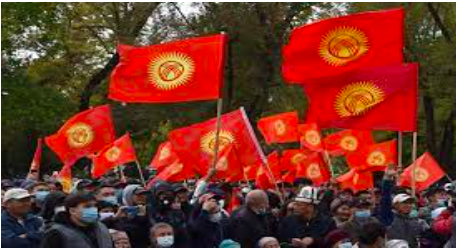The Constitution (Seventy-third Amendment) Act, 1992
Posted on : September 7, 2020Author : AGA Admin

Statement of Objects and Reasons appended to the Constitution (Seventy-second Amendment) Bill, 1991 which was enacted as the Constitution (Seventy-third Amendment) Act, 1992
STATEMENT OF OBJECTS AND REASONS
- Though the Panchayati Raj Institutions have been in existence for a long time, it has been observed that these institutions have not been able to acquire the status and dignity of viable and responsive people’s bodies due to a number of reasons including absence of regular elections, prolonged supersession, insufficient representation of weaker sections like Scheduled Castes, Scheduled Tribes and women, inadequate devolution of powers and lack of financial resources.
- Article 40 of the Constitution which enshrines one of the Directive Principles of State Policy lays down that the State shall take steps to organise village panchayats and endow them with such powers and authority as may be necessary to enable them to function as units of self-government. In the light of the experience in the last forty years and in view of the short-comings which have been observed, it is considered that there is an imperative need to enshrine in the Constitution certain basic and essential features of Panchayati Raj Institutions to impart certainty, continuity and strength to them.
- Accordingly, it is proposed to add a new Part relating to Panchayats in the Constitution to provide for among other things, Gram Sabha in a village or group of villages; constitution of Panchayats at village and other level or levels; direct elections to all seats in Panchayats at the village and intermediate level, if any, and to the offices of Chairpersons of Panchayats at such levels; reservation of seats for the Scheduled Castes and Scheduled Tribes in proportion to their population for membership of Panchayats and office of Chairpersons in Panchayats at each level; reservation of not less than one-third of the seats for women; fixing tenure of 5 years for Panchayats and holding elections within a period of 6 months in the event of supersession of any Panchayat; disqualifications for membership of Panchayats; devolution by the State Legislature of powers and responsibilities upon the Panchayats with respect to the preparation of plans for economic developments and social justice and for the implementation of development schemes; sound finance of the Panchayats by securing authorisation from State Legislatures for grants-in-aid to the Panchayats from the Consolidated Fund of the State, as also assignment to, or appropriation by, the Panchayats of the revenues of designated taxes, duties, tolls and fees; setting up of a Finance Commission within one year of the proposed amendment and thereafter every 5 years to review the financial position of Panchayats; auditing of accounts of the Panchayats; powers of State Legislatures to make provisions with respect to elections to Panchayats under the superintendence, direction and control of the chief electoral officer of the State; application of the provisions of the said Part to Union territories; excluding certain States and areas from the application of the provisions of the said Part; continuance of existing laws and Panchayats until one year from the commencement of the proposed amendment and barring interference by courts in electoral matters relating to Panchayats.
The main features of the Act are:
- establishment of a three-tier structure: Village Panchayat (Gram Panchayat); intermediate Panchayat (Panchayat Samiti; and the district Panchayat (Zila Parishad);
- regular elections, every five years;
- reservation of seats for the Scheduled Castes and Scheduled Tribes in proportion to their population;
- not less than the one-third reservation of seats for women at three different levels of PRIs;
- establishment of State Finance Commissions to recommend measures to improve the finances of panchayats;
- establishment of State Election Commissions to conduct an election to the PRIs;
- establishment of District Planning Committees to prepare development plans for the districts;
- preparation of plans for economic development and social justice and their execution concerning 29 subjects listed in the 11th Schedule of the Constitution;
- establishment of Gram Sabha (village assemblies) and their empowerment as a decision making body at the village level; and
- rotation in accordance with the reservation of seats for women and the Scheduled Castes in the PRIs.
By the Constitution (73rd Amendment) Act, the Panchayati Raj Institutions have been given such powers and authority as may be necessary to enable them to function. It contains provisions for devolution of powers and responsibilities related to
- the preparation of plans for economic development and social justice; and
- the implementation of such schemes for economic development and social justice as may be entrusted to them.




